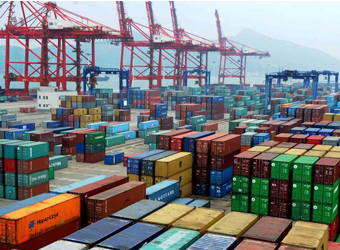Sanctions imposed by three other Gulf states and Egypt slashed Qatar’s imports by more than a third in June, while exports excluding its vital shipments of liquefied natural gas (LNG) were also disrupted, official data showed on Sunday.
Imports shrank 40.0 percent year-on-year and 37.9 percent from the previous month to 5.87 billion riyals ($1.61 billion), Ministry of Development, Planning and Statistics figures showed.
In May, imports fell just 0.3 percent year on year.
Saudi Arabia, the United Arab Emirates, Bahrain and Egypt cut diplomatic and transport ties with Qatar on June 5, accusing Doha of supporting terrorism, which it denies.
The closure of the Saudi border, over which much of Qatar’s imports of food, dairy products and construction materials came, as well as a halt to shipping services from the United Arab Emirates, delayed shipments for some days as Doha arranged other routes through centers such as Oman.
Now that alternate shipping routes and suppliers have been arranged, analysts believe Qatar can function fairly well even if the sanctions continue, and still expect it to be one of the Gulf’s best-performing economies this year.
The ministry’s figures suggested Qatar’s exports of LNG – the key to its financial health – were not hurt in June.
June exports of petroleum gases and other gaseous hydrocarbons climbed 15.8 percent from a year earlier to 11.88 billion riyals. They rose 21.6 percent in May.
However, exports of petroleum oils including crude oil fell 22.4 percent after rising 8.3 percent in May. Non-petroleum exports fell 15.1 percent.
Among exports hit by the sanctions were helium, which used to be shipped overland across the Saudi border.
Qatar is one of the world’s top producers of the gas. Officials say alternative ways to export helium have now been found.
Qatar’s June trade surplus jumped to 12.51 billion riyals, up 63.6 percent from a year earlier and up 15.3 percent from May, the data showed.
Source: Reuters


